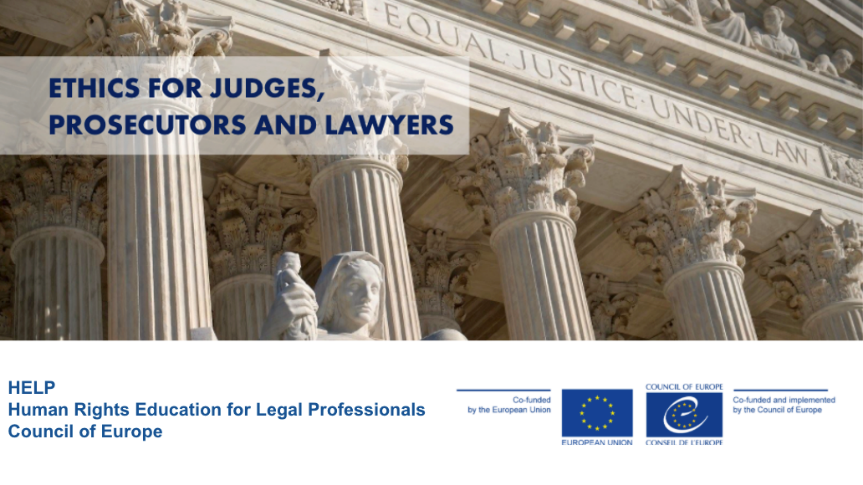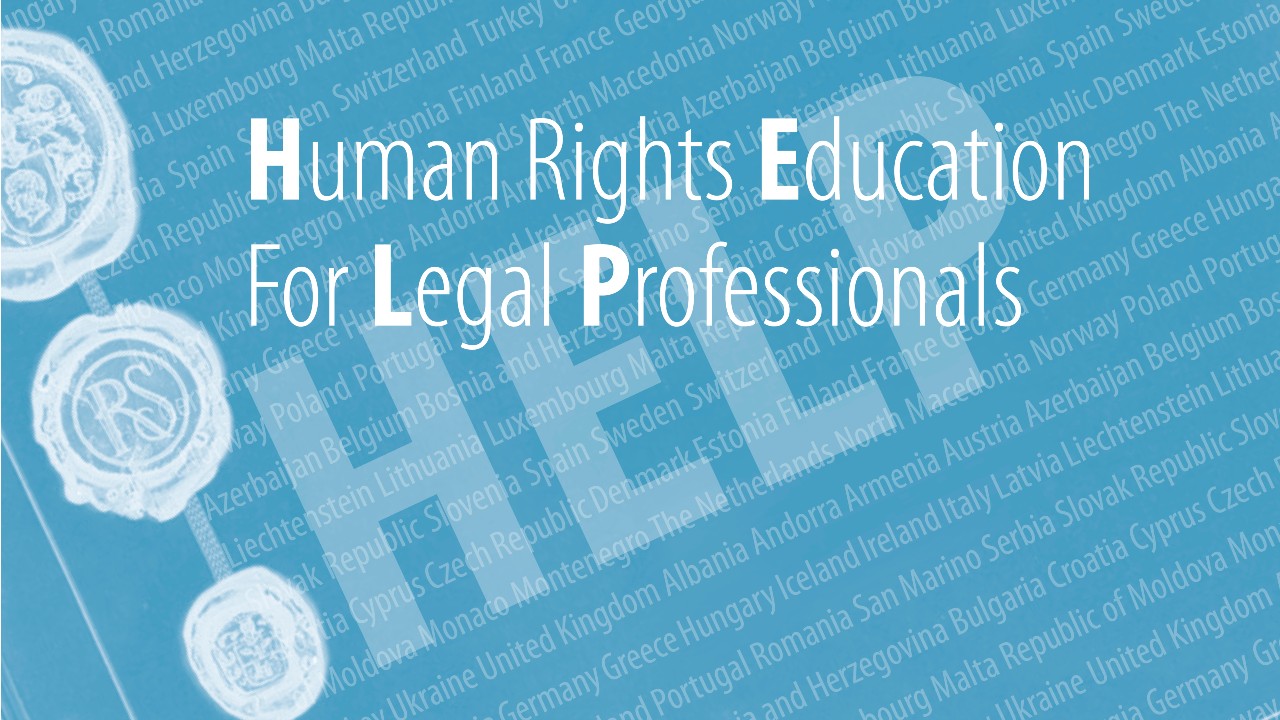The state of rule of law is an increasing concern in respect of many European countries. In recent years concerted efforts have been made at European level to prevent degradation of the rule of law through measures aimed at the well-functioning of national justice systems.
In the framework of the EU-CoE HELP in the EU II project, the Council of Europe (CoE) has developed a new HELP online course on “Ethics for Judges, Prosecutors and Lawyers” which covers in an interactive way the key concepts and principles, the International and European (CoE and EU) framework as well as the relevant case law of the European Court of Human Rights (ECtHR) and of the Court of Justice of the European Union (CJEU). It seeks to address ethical dilemmas in the performance of professional duties by deepening the knowledge and understanding of professional tools and developing reflective skills, based on practical examples.
The new HELP online course includes the main international standards for each profession (such as the Bangalore Principles), as well as, at CoE level, the standards and guidelines referenced in the European Commission for the Efficiency of Justice (CEPEJ) materials, the Venice Commission relevant opinions and Rule of Law Checklist, the opinions issued by the Consultative Council of European Judges (CCJE) and the Consultative Council of European Prosecutors (CCPE), as well as the relevant case law of the ECtHR. At EU level, it includes the relevant EU framework, including Article 47 of the EU Charter of Fundamental Rights and the case-law of the CJEU, as well as references to the EU initiatives to strengthen the rule of law, such as the Rule of Law reports and the specific Rule of Law Mechanism.
This course is thought to help professionals understand the purpose and importance of ethics in the administration of justice for the benefit of the people, allowing to identify key concepts and understand common values, ethical principles and virtues.
The online course has been developed by the Council of Europe HELP Programme under the EU-CoE “HELP in the EU II” project, in cooperation with several Council of Europe entities/services such as the Secretariats of the Venice Commission, the European Commission for the Efficiency of Justice (CEPEJ) and the Consultative Councils of European Judges and Prosecutors (CCJE and CCPE) as well as the Registry of the European Court of Human Rights. The course consists of 2 general modules on Introduction and International and European Framework and 3 specific modules for judges, prosecutors and lawyers, respectively:
Introduction
- Why does professional ethics matter?
- Common values and principles
- Key concepts
- Distinction between ethical principles and disciplinary rules
International and European Framework
- Treaty norms
- United Nations
- Council of Europe
- European Union
- Professional bodies
- Instruments of international courts
Ethics for Judges
- Main principles
- Qualities and virtues
- Tools
- Practical examples
Ethics for Prosecutors
- Main principles
- Relation with the media
- Tools
Ethics for Lawyers
- General principles
- Relation with other parties
- Values
- Tools
- Practical examples
The course is freely available in self-learning format on the CoE HELP e-learning platform. The overall length of the online course is approximatively nine hours and those who complete it online can obtain an electronic ‘Statement of accomplishment’.
It will also be translated into several languages and launched in tutored format in collaboration with interested HELP national partners (National Training Institutions and Bar Associations).
You can also watch the course video presentation.
For a comprehensive approach on rule of law, you can enrol in other HELP-related courses dealing with fair trial, access to justice (for women), anti-corruption (as of July 2021) and media:
Procedural Safeguards in Criminal Proceedings and Victims’ Rights





